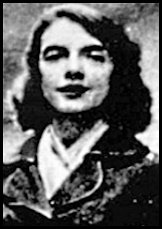Foreign AGENT JUNE COBB
VIOLA JUNE COBB
Cobb was born within Oklahoma during nineteen twenty-seven and later attended Ponca City High School. She attended but did not graduate from the University of Oklahoma, served in the Oklahoma Civil Air Patrol, and was the secretary for a local medical news magazine. Viola subsequently traveled to multiple Latin American countries and became a source for the US Bureau of Narcotics regarding the Cuban drug trade. Amidst the late nineteen fifties the Castro regime hired June to manage its English publications and she was among those officials with access to important members of Cuba’s leadership. By nineteen sixty the Central Intelligence Agency recruited her to serve as a double agent within Fidel Castro's senior staff. The Cuban government employed Cobb as a public relations officer but she also was gathering intelligence and one related Agency official referred to her status as a "controlled fellow traveler". She conducted assignments under the direction of the Agency’s Special Affairs Staff but the CIA was not the last government organization expressing interest.
Viola “June” Cobb Photographed Amid The Nineteen Forties
The Federal Bureau of Investigation sought to enlist Cobb for information during nineteen sixty-one to gather intelligence on the Fair Play for Cuba Committee, a group Lee Harvey Oswald would later claim a false association with in New Orleans. June testified before the Senate Judiciary Committee regarding national security in nineteen sixty-two about her service to government agencies and communist related groups. The same year she was part of Mexico City Station’s operations targeting the Castro regime and would appear in a Parade Magazine article by Jack Anderson labeled a “soldier of fortune”. Following President Kennedy assassination the next year Cobb made assertions that Soviet officials and Oswald were connected but failed to prove them. She was an undercover contract agent in Latin America during nineteen sixty-six but two years later Cobb terminated her Agency employment. Cobb’s exceedingly high opinion of her self as a “special person” and not desiring to cultivate lower level agents potentially explain her departure.
201 File
201 File Volume 1 201 File Vol. 2 201 File Vol. 6 201 File Vol. 7
Miscellaneous Files
Miscellaneous Biographic File Misc. Bio File 2
Other Files
Security File Senate Internal Security Subcommittee Testimony
Related Alias
Clarinda E. Sharp
Related Pseudonym
Joyce H. Pineinch





